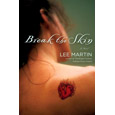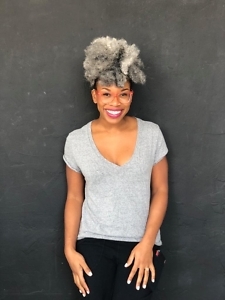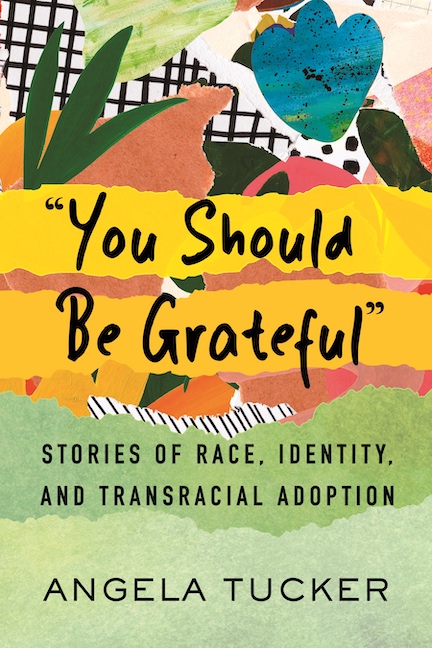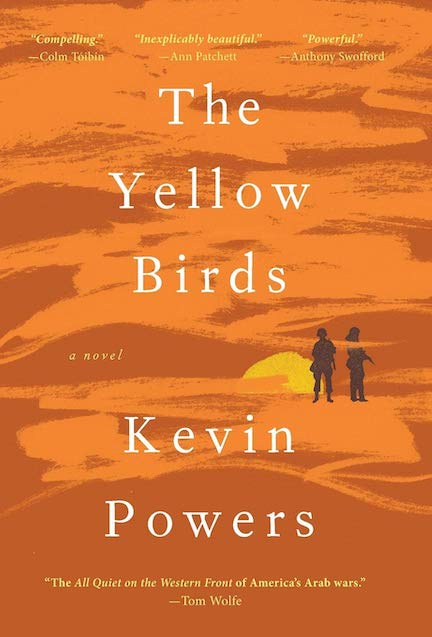Building Momentum
Michael Connelly discusses his popular detective series, his journalism background, and the future of the book
FROM THE CHAPTER 16 ARCHIVE: This interview originally appeared on February 17, 2010.
***
“If you’re fortunate, as I have been, and you the get the opportunity to write a series of novels that goes on and on,” Michael Connelly said in a recent video diary of a research trip to Hong Kong, “you come to realize that every now and then you can do a fish-out-of-water story.” Connelly’s fish is Harry Bosch, the introspective, Chandleresque detective he introduced in 1992 with Echo Park. Bosch has pursued criminals “on and on” through fourteen subsequent novels, most of them set in and around Los Angeles, a city Connelly grew to know as a crime reporter for the Los Angeles Times. In an interview with Chapter 16, Connelly describes the latest Bosch installment, Nine Dragons, and bemoans the slow death of local newspapers. He also discusses his prodigious output, electronic books, and his popular legal-series protagonist, Mickey Haller.
Chapter 16: In Nine Dragons, middle-aged detective Harry Bosch risks everything to rescue his kidnapped daughter in Hong Kong. In last year’s movie Taken, a middle-aged spy played by Liam Neeson risks everything to rescue his kidnapped daughter in Paris. In the new movie Edge of Darkness, a middle-aged detective played by Mel Gibson risks everything to avenge his murdered daughter. Obviously, you foresaw some sort of convergence moment in the zeitgeist. What it is about middle-aged tough guys with daughters in extremis?
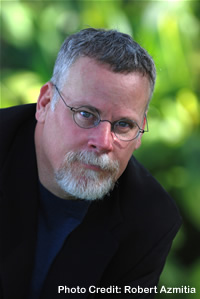 Connelly: Actually I am not smart enough to catch a zeitgeist. Nine Dragons was written before Taken came out so I just chalk that up to coincidence. And I have not yet seen Edge of Darkness so can’t comment there. In the details the stories of Nine Dragons and Taken are very different. I think when I chose about eight years ago to reveal that Harry Bosch has a daughter, I was setting up the story that takes place in Nine Dragons. It’s about vulnerability. I have been writing about this relentless pursuer for about twenty years. In order to keep him real I have to show different dimensions of him all the time. By giving him a daughter I knew I could explore his vulnerability in a future novel. The daughter meant Harry could be gotten to, and Nine Dragons is the story where that happens.
Connelly: Actually I am not smart enough to catch a zeitgeist. Nine Dragons was written before Taken came out so I just chalk that up to coincidence. And I have not yet seen Edge of Darkness so can’t comment there. In the details the stories of Nine Dragons and Taken are very different. I think when I chose about eight years ago to reveal that Harry Bosch has a daughter, I was setting up the story that takes place in Nine Dragons. It’s about vulnerability. I have been writing about this relentless pursuer for about twenty years. In order to keep him real I have to show different dimensions of him all the time. By giving him a daughter I knew I could explore his vulnerability in a future novel. The daughter meant Harry could be gotten to, and Nine Dragons is the story where that happens.
Chapter 16: You introduced Mickey Haller in The Lincoln Lawyer in 2005, after the eleventh Harry Bosch book was published. Since then, the two protagonists have crossed paths and worked together. Was that your intention when you first created Mickey Haller? Will we see more books featuring both protagonists?
Connelly: I am working on a book now called The Reversal in which they once again cross paths. The book is constructed with each of them carrying the narrative in alternating chapters. I think the plan all along was to introduce Mickey as this sort of flip side of Harry and then to put them in some stories together. It’s been an interesting back and forth.
Chapter 16: Did you know lawyers like Haller back in your reporting days? How did you research his character?
Connelly: I think I did, but back then I did not know them that well and was not invited into their lives. Because Mickey is fictional, I had a lot of behind-the-scenes access to lawyers. The research becomes anecdotal that way. They tell you stories, and you see stories and episodes of what it is like to do their job on a day-to-day basis. I primarily researched the book through two defense attorneys who allowed me full access. But I had help from several other attorneys, a criminal courts judge, and an investigator for the California Bar. Even with all of that I am sure I got stuff wrong. I always say I am a slave to drama ahead of being a slave to the accuracy of the details.
Chapter 16: You have published nine books in the past five years. How do you stay so productive?
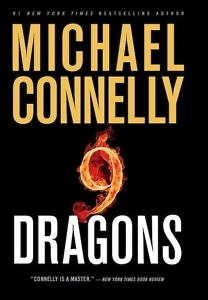 Connelly: That’s scary. I didn’t think it was that many. I write at a pace that suits me. No one tells me how much or how little to write or publish. I get story ideas and need to write them. It builds its own sort of momentum, and it ebbs and flows. I think I am slowing down for the moment. Just one book this year and I don’t know yet what comes after that.
Connelly: That’s scary. I didn’t think it was that many. I write at a pace that suits me. No one tells me how much or how little to write or publish. I get story ideas and need to write them. It builds its own sort of momentum, and it ebbs and flows. I think I am slowing down for the moment. Just one book this year and I don’t know yet what comes after that.
Chapter 16: As a writer who got his start in print journalism—not to mention being the author of a recent novel featuring a downsized reporter—what do you think of the crisis now affecting American newspapers?
Connelly: I think my sentiments were contained in my book The Scarecrow and that is that the American newspaper is irreplaceable. Sure, much of the content and advertising can be shifted to the Internet but the newspaper is a community tent pole. It is a center of information, discussion, and debate. And when the center is broken up and shifted to websites and blogs that can go unseen and ignored, then the tent comes down. I don’t think we will truly understand the importance of the local newspaper until there are none left.
Chapter 16: What does the near-collapse of the industry mean for the next generation of crime writers?
Connelly: Many of us cut our teeth in the newspaper business, so I think that we will lose a whole school of training. I learned the craft of writing at a newspaper. It also put me in close proximity to crime scenes and detectives and victims and just about everything I write about now. I would not be doing this if I had not been a reporter on the crime beat. So to me there is a big loss there.
Chapter 16: Speaking of generations, are there any younger crime writers whose books you admire and would recommend?
Connelly: There are some good young writers coming down the pike. Michael Koryta, Michael Lister, Denise Mina among them. I actually don’t know how old these writers are. I consider them young because to me they are new voices and I think they should be heard. But these three just come to mind because I have read their work, think it’s really good and that they should have higher profiles. But there are many more. We are in very good shape when it comes to new writers.
Chapter 16: Do you own a Kindle or similar electronic reader? What’s your opinion of their impact on readers and writers?
Connelly: I own a couple different machines because I am interested in any form of storytelling. I personally have not warmed to the use of these but appreciate how there might be others who feel it’s a perfect form for their lifestyle. For the most part, I think, “to each his own.” There should be room in the storytelling business for all forms.
But where I am most concerned is in the pricing of stories for these devices. If companies choose to make their profits on the machines instead of on the stories, then I can see where there is going to be a problem. The pricing of ebooks may endanger brick and mortar bookstores, which could force writers to choose sides, and it will be impossible for a writer like me to abandon the bookstore. It was the people in bookstores who championed my books when nobody had ever heard of me. My books were hand-sold by sales reps and bookstore owners for years and years. And they still are today. I won’t ever forget that.
Chapter 16: Your work has been the basis for a couple of movies and a television series. How do you feel about your experiences with Hollywood? Any new movies or shows in the works?
Connelly: My experience has been interesting but nothing more than a side show. I remain interested in seeing my work told visually. It is very exciting. But it’s secondary to the writing, so I don’t let it take much of my attention. As far as I know, nothing is happening for sure with any of my stuff. The closest is probably The Lincoln Lawyer, which seems to keep edging closer to becoming a movie.

